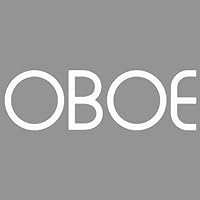In the dynamic world of Android app development, selecting the right laptop is a critical decision that can significantly impact your workflow and productivity. With millions of Android apps being developed each year, navigating through the myriad of options can be daunting. To help you make an informed choice, let’s explore the key features to consider when selecting a laptop for Android app development.
- Processor: Efficiency and performance are paramount in the world of Android app development. Look for laptops equipped with fast and multitasking-capable processors such as Intel Core i5/i7 or AMD Ryzen, ensuring optimal performance during development.
- RAM: Android Studio and other development tools demand substantial memory. Aim for a minimum of 8GB RAM, but for larger projects, a laptop with 16GB or more is recommended to handle memory-intensive applications seamlessly.
- Graphics Card: While not mandatory, a graphics card from NVIDIA or AMD can enhance the rendering of UI elements. This feature is particularly beneficial if your development involves graphics-intensive tasks.
- Storage: For Android development, a laptop with a minimum of 512GB storage is recommended. If you frequently work with large files, consider upgrading to 1TB. Opt for laptops with SSDs for faster and more reliable performance compared to HDDs.
- Display: A high-resolution display provides ample screen space for coding and UI elements. Prioritize color-accurate displays to ensure your app looks consistent across various devices. Consider a matte display to reduce glare and, if relevant, opt for a touchscreen for touch-based app development.
- Portability: Balancing portability with power is crucial for on-the-go development. Seek a laptop with sufficient processing power, memory, and storage, coupled with a long battery life. This ensures you can run development environments and emulators without sacrificing mobility.
- Long Battery Backup: Choose a laptop with a battery life of 8 hours or more, complemented by fast-charging capabilities. The option to replace the battery adds an extra layer of reliability for uninterrupted Android app development.
- Connectivity: Ensure your chosen laptop has ample USB ports, an HDMI port, and updated Wi-Fi software for seamless connectivity to devices and peripherals. Ethernet connectivity can also be valuable for certain scenarios.
- Security Features: Prioritize laptops with robust security features, including antivirus software, a fingerprint scanner, and a privacy screen. Protecting your work and sensitive data from cyber threats and unauthorized access is crucial in the development process.
In the realm of laptops suitable for Android development, consider investing in options like the HP Zbook or HP Omen series. These laptops boast the latest i7/i9 Intel processors and RTX Graphics cards, providing the power and connectivity necessary for a smooth development experience.
Embarking on Android app development can be both challenging and rewarding. Armed with the right skills and tools, coupled with a suitable laptop, developers can efficiently create high-quality apps that resonate with users. Choose wisely, and let your creativity flourish in the world of Android development.
Explore the best Laptop for Android App Development

































